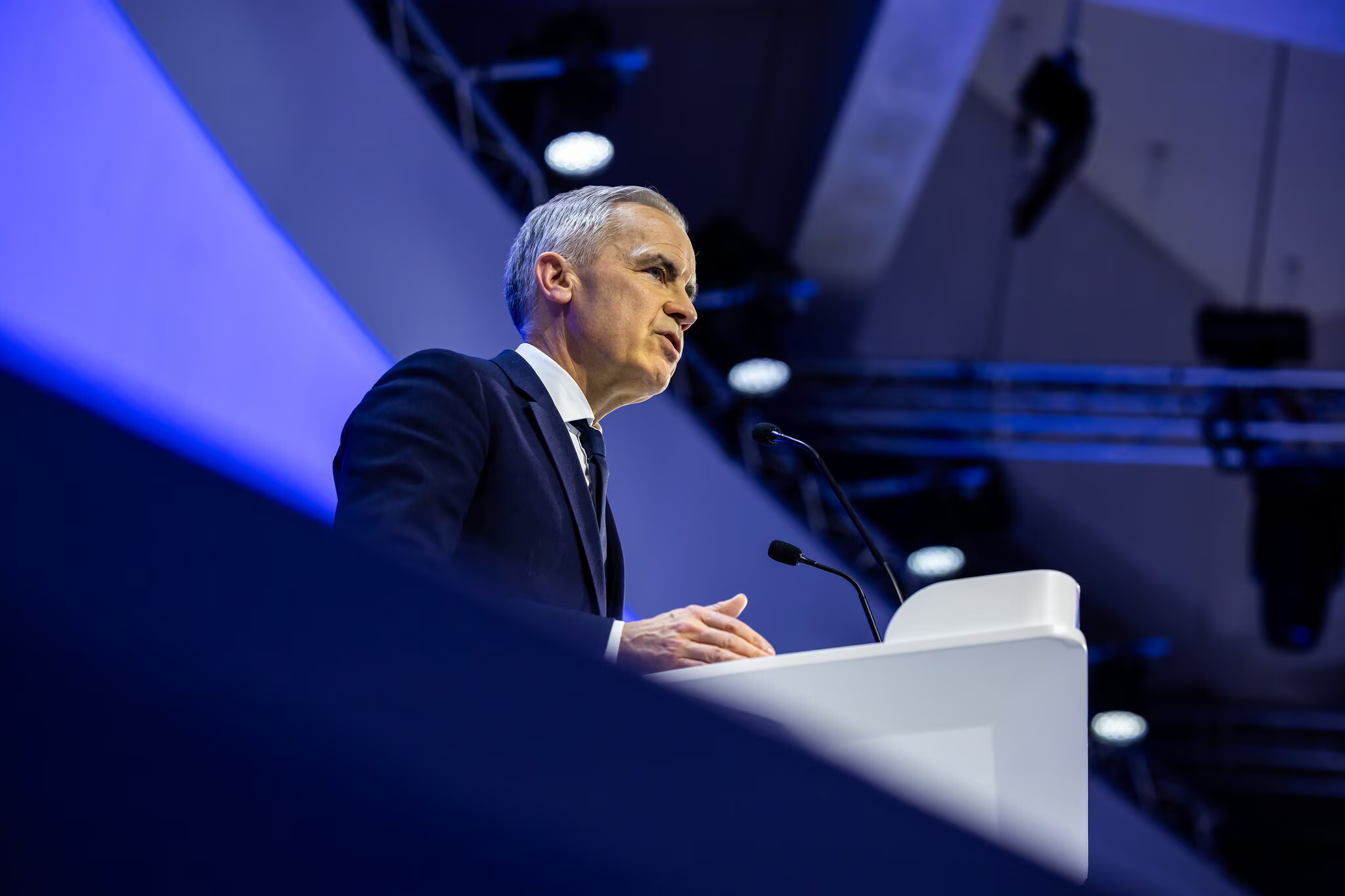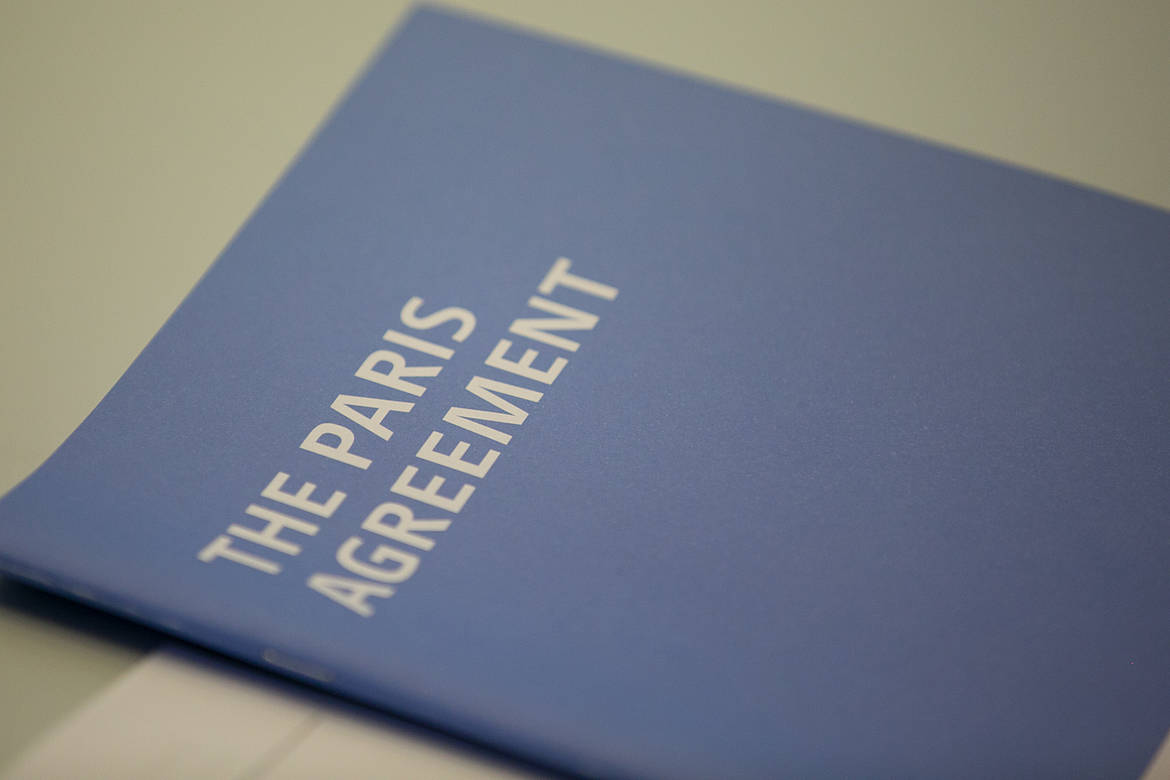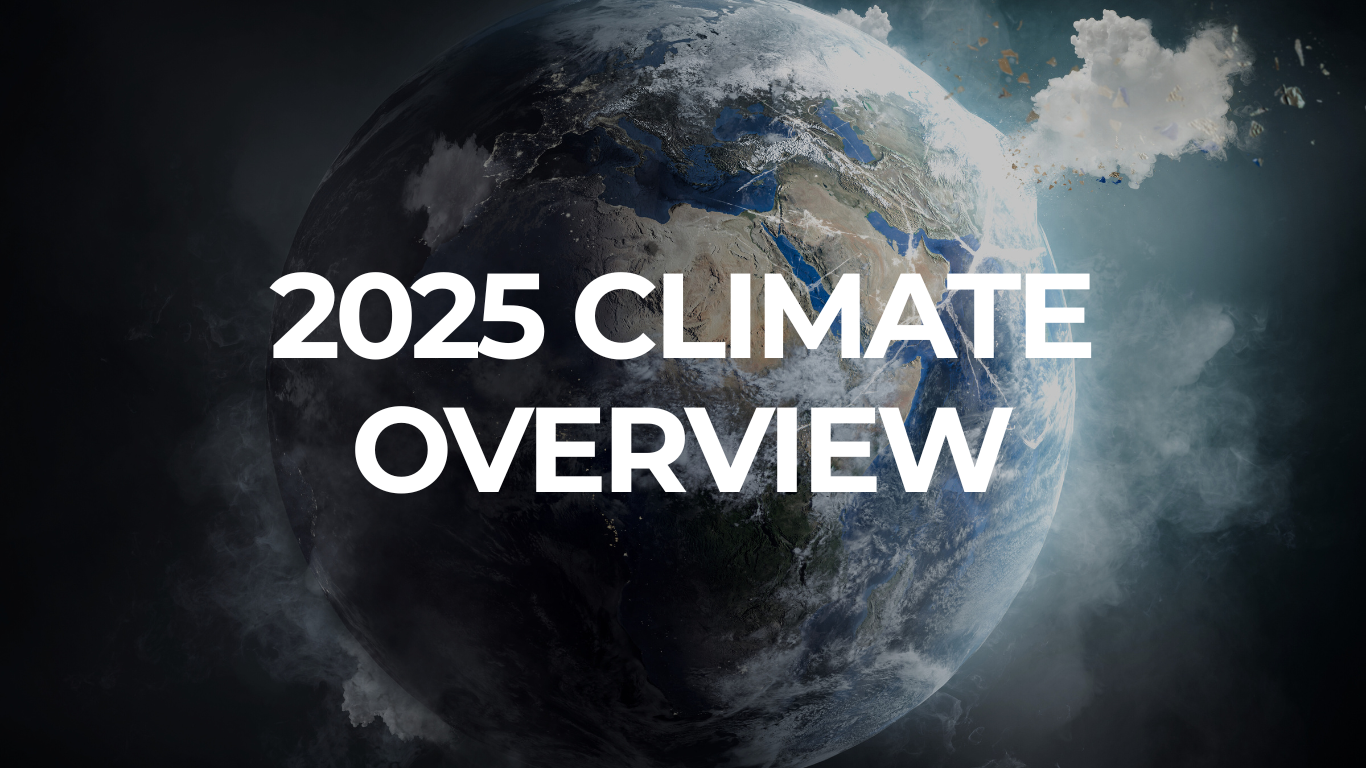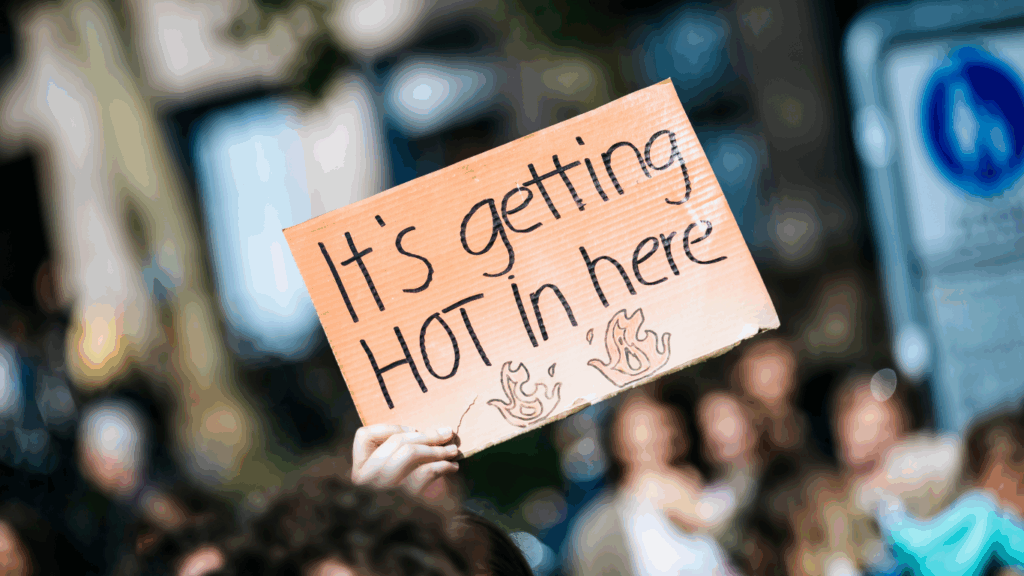From heatwaves to high-stakes diplomacy, here’s your essential mid-year roundup, and what to watch heading into COP30
1. 2025 Is the Paris Agreement’s 10-Year Mark, And We’re Off Track
This year marks a decade since the historic Paris Agreement was adopted at COP21. While emissions data, climate laws, and clean tech deployment have progressed in some regions, the 1.5°C temperature limit is slipping fast. New projections show current policies putting the world on course for 2.5–2.9°C warming according to the latest UNEP’s Gap Report.
“The climate crisis is no longer distant. It is here and now… caught in culture wars, economic scaremongering and rising authoritarianism – often by design,” wrote Laurence Tubiana, architect of the Paris Agreement. “Our task now must be to rebuild a shared political foundation for climate action – one that is credible, inclusive, and strong enough to carry the weight of this transformation”, she added.
2. The Heat Is Literally On: Climate Disasters Are Surging
In January, we started the year with the World Meteorological Organisation confirming that 2024 had been the hottest year in record (+1.55 ºC warmer than pre-industrial levels) and every month since we have seen more record-braking extreme weather hammering every continent:
- Severe drought is driving hunger and desperation in the Horn of Africa.
- Record floods in Texas killed over 130 people (NBC)
- Wildfires have scorched Southern California
- Heatwaves broke records in the U.S., Europe, and Asia; China recorded its hottest June on record
3. Only 22 Countries Have Submitted New 2035 Climate Plans
Despite the urgency, just 22 countries have submitted updated nationally determined contributions (NDCs) with 2035 targets covering only 21% of global emissions, according to Climate Action Tracker. Big emitters like China, India, Indonesia, and the EU are dragging their feet and just one NDC (the UK’s) is close to be 1.5°C-aligned. Watch for a September submission rush and the UNFCCC’s synthesis report. Follow the UNFCCC’s website for updates.
4. Transparency Is Growing: 102 Countries Filed Climate Progress Reports
More than 100 countries have submitted their first-ever Biennial Transparency Reports (BTRs) under the Enhanced Transparency Framework of the Paris Agreement. This new wave of data gives insight into emissions inventories, adaptation actions, and finance flows. While a milestone for transparency, gaps in data quality and reporting capacity remain. Watch out the climate transparency updates following #Together4Transparency and the UNFCCC and stay tuned for the upcoming Global Transparency Forum, in Songdo on 3-5 September.
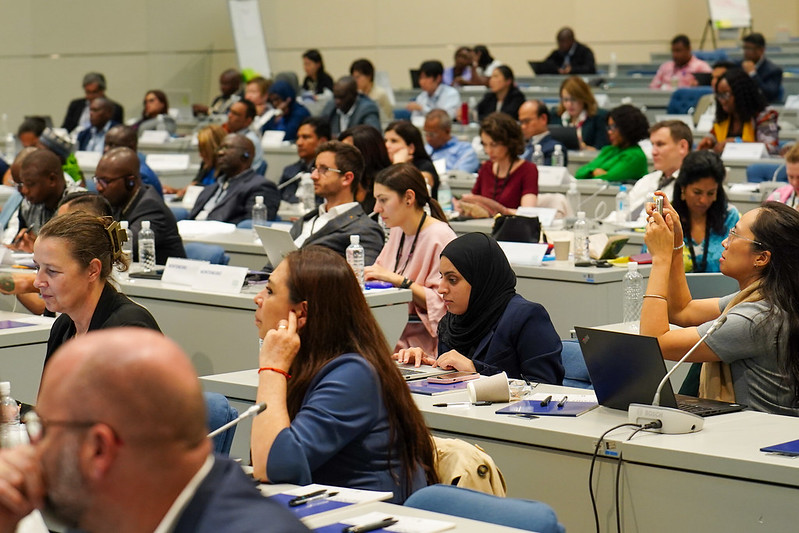
5. Climate Finance: Still the Evergreen Friction Point
Despite calls for trillions, climate finance remains the Achilles heel of implementation. Aid budgets are being cut in several OECD countries, with projections showing a 9–17% drop globally, and up to 28% in Sub-Saharan Africa according to recent data. Developing countries continue to push for clarity on the New Collective Quantified Goal (NCQG), the finance deal meant to replace the $100B target by COP30.
6. Brazil Is Reimagining COP30, and the UNFCCC
As COP30 host, Brazil is advancing a dual agenda: revitalizing diplomacy while showcasing action beyond the negotiation rooms.
First, the “Action Agenda” aims to elevate the role of cities, Indigenous peoples, youth, businesses, and regions. Brazil wants COP30 to recognize these actors not as side events, but as central players in delivering the Paris goals, with a platform to track and promote their contributions.
Second, Brazil has proposed creating a Climate Change Council, a standing body outside the COP cycle to help countries coordinate implementation, build fossil fuel phaseout strategies, and sustain momentum year-round. The idea reflects frustration with slow and fragmented progress under the current UNFCCC setup.
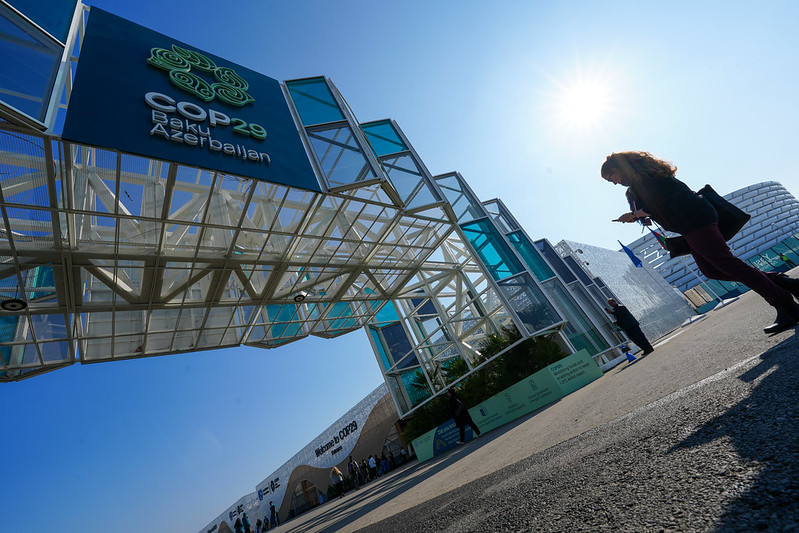
7. COP30’s Location Could Undermine Participation
Belém, the Brazilian city hosting COP30, is grappling with logistics. By choosing the relatively remote destination over other major cities like Rio, Brasilia or Sao Paolo, Brazil has prioritised the symbolism of hosting the COP in the Amazon over convenience and pragmatism.
Today, less than four months ahead of COP30, Booking offers international-standard accommodation from €17,000 up to €74,000 for two weeks. Opportunism and lack of preparedness is casting a shadow over the conference with civil society and small delegations fearing being priced out of the most important annual climate discussions.
In an attempt to secure comfortable accommodation to country delegates, Brazil has broken a deal with major cruise travel giant MSC and has started offering accommodation in cruise cabins to governmental delegates at daily rates that range from $200 to $600 per night.
8. Cooling, Cities, and Coalitions Are Gaining Ground
While formal negotiations in Bonn delivered few breakthroughs, national, sectoral and subnational actors pushed ahead on the so-called “real-world” implementation.
- World Refrigeration Day 2025, on 18 June, brought together governments, businesses, scientists, engineers and frontline professionals to spotlight the critical role of cooling and heat pumps in climate mitigation and public health. The event (supported by 10 Billion Solutions) featured high-level speakers, technical panels, and powerful community voices. With the highlights video below we helped capture the urgency of scaling up sustainable refrigeration as part of national climate strategies. Watch the video we produced and pictures here.
- At the Global Cooling Pledge signatories meeting in June in Bonn, countries and international agencies advanced a roadmap to integrate sustainable cooling into their NDCs and other national policies. Watch the summary video we produced with UNEP.
- London Climate Action Week keeps growing in scope and attendance. This year’s edition took place in June (surprisingly, in parallel ot the UNFCCC Bonn Conference), featuring 700+ events connecting city leaders, businesses, and activists to discuss topics like finance, technology, climate justice, nature, and clean energy deployment.
- The UNFCCC has reinvented its regional climate weeks in 2025. Instead of a dominant regional and implementation focus, these weeks are now less regionally oriented and have a focus closer to the intergovernmental process. The first of this year’s weeks took place in Panama in May and the second and last will take place in September in Ethiopia. Learn more about the new climate weeks here.
- All eyes now turn to Climate Week NYC (23–29 September 2025) a major moment, for businesses mainly but also subnational actors and civil society, to showcase climate action and unite the willingness to move forward despite a very negative context. Stay tuned here.
9. Brasília’s Pre-COP Will Set the Political Stage
Scheduled for 13–14 October, the Pre‑COP in Brasília is the most important diplomatic moment before COP30. It’s where ministers must grapple with how to turn the outcomes of COP28, especially the fossil fuel phaseout, into credible national and global action.
Across four official letters (1, 2, 3 and 4), the COP30 Presidency has made its vision clear: this must be the “COP of convergence and delivery”. Brasília will be where parties align on key priorities: fossil transition pathways, the new climate finance goal, and a measurable Global Goal on Adaptation.
In the fourth letter in June, the Presidency urged ministers to back the Action Agenda, a platform for cities, businesses, Indigenous peoples and civil society to bring forward real solutions that complement negotiations emphasizing the need for alignment between official outcomes and real-world implementation.
10. Climate Communication Still Needs an Upgrade
Despite record-breaking heat, floods, fires and droughts growing in intensity and occurrence, and public awareness rising, the political and economic landscape has clearly shifted. For decision-makers, climate is no longer the top priority it used to be.
The question is how do we “make climate (action) great again”?
The challenge isn’t knowing, it’s doing. What we need now is bold, sector-specific action rooted in a clear vision of the future we want and the steps to get there.
That’s why at 10 Billion Solutions we have a mission to use effective communications as a powerful tool for climate action. We work to shift the narrative from doom to agency, highlighting how organisations, communities, cities, and individuals are taking action, even when national governments stall.
Subscribe to our newsletter to stay up-to-date and visit our Academy to learn how to improve your climate communications.
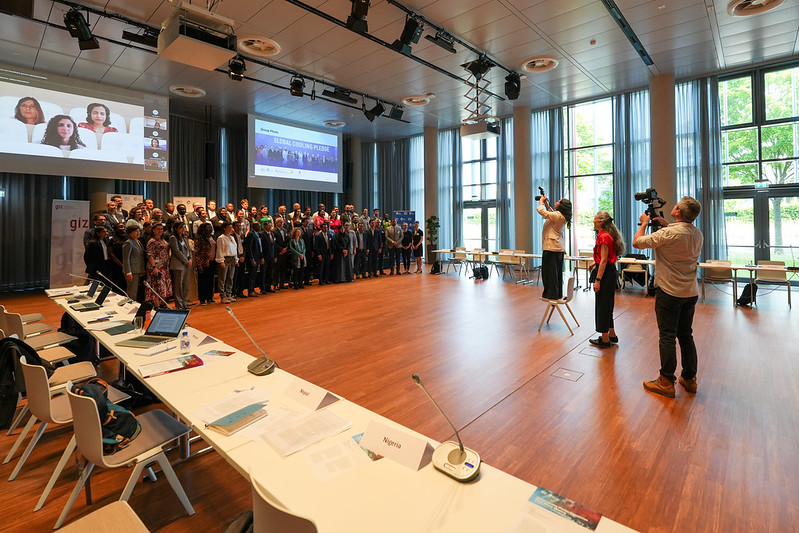
How 10 Billion Solutions Is Helping Shift the Narrative
To craft communications that work, three core strategies are proving essential:
- New Climate Narratives
- In a recent Academy blog post, we argue that the climate story must be refreshed for a fractured world overwhelmed by geopolitics, disinformation, and crisis fatigue. Read it here.
- We need messaging that blends urgency with optimism, spotlighting community-led solutions and the role of subnational actors, businesses and civil society.
- Strategic Tools & Training
- The 2025 Sustainability & Climate Calendar helps communicators plan content around key moments.
- The 10 Billion Solutions Academy provides tailored courses in events moderation and public speaking or media training. We also offer fully tailored micro-consulting sessions to respond to your specific needs.
- On-the-Ground COP & Conference Coverage: Through multimedia storytelling and strategic event conception and facilitation during climate conferences, 10 Billion Solutions has supported organisations transforming complexity into clarity and elevating voices that might otherwise remain unheard.

